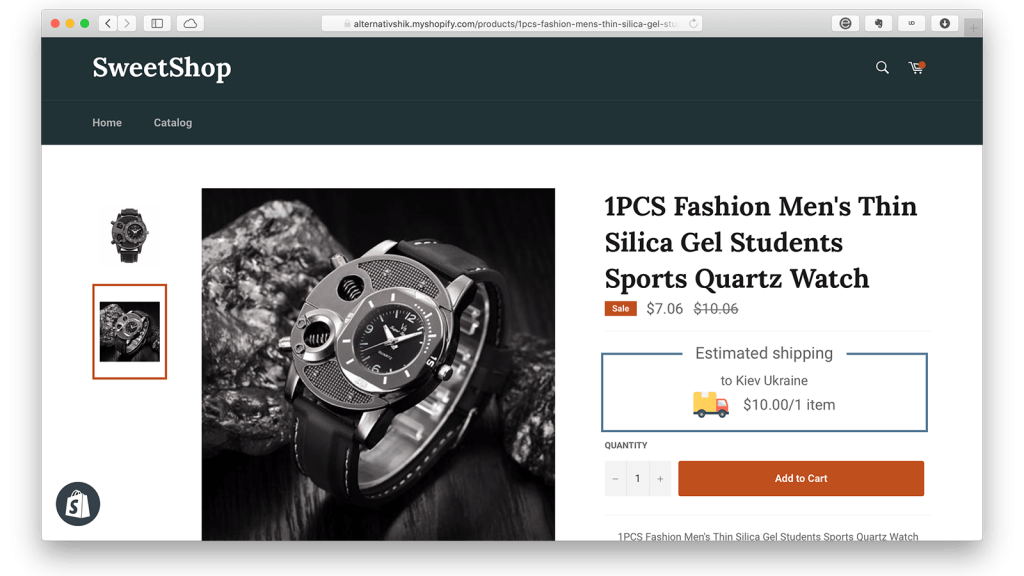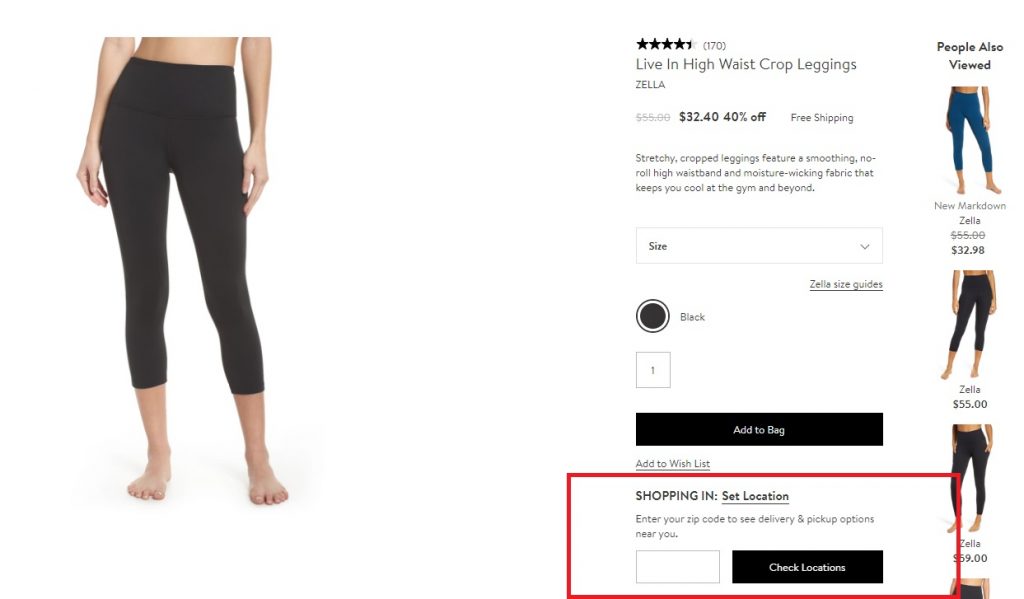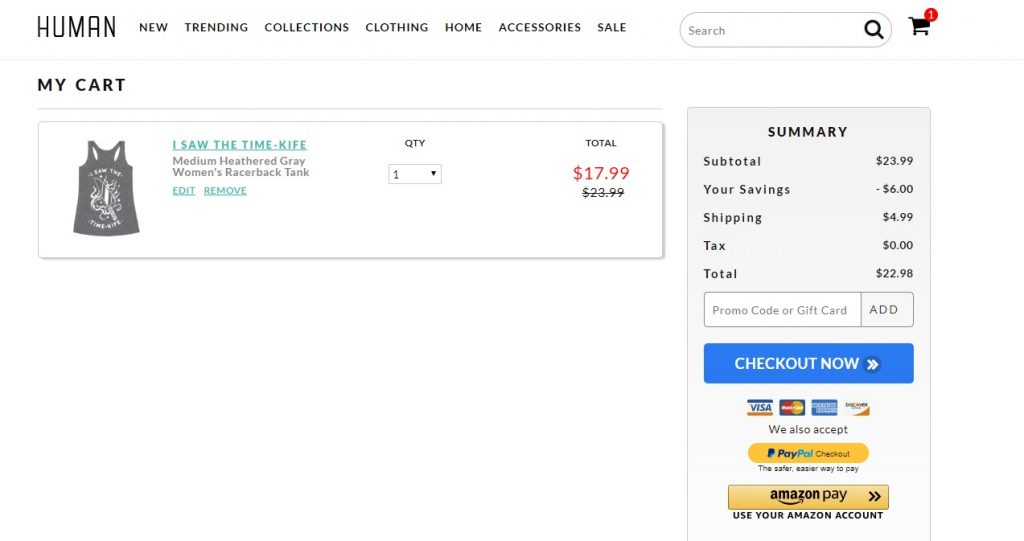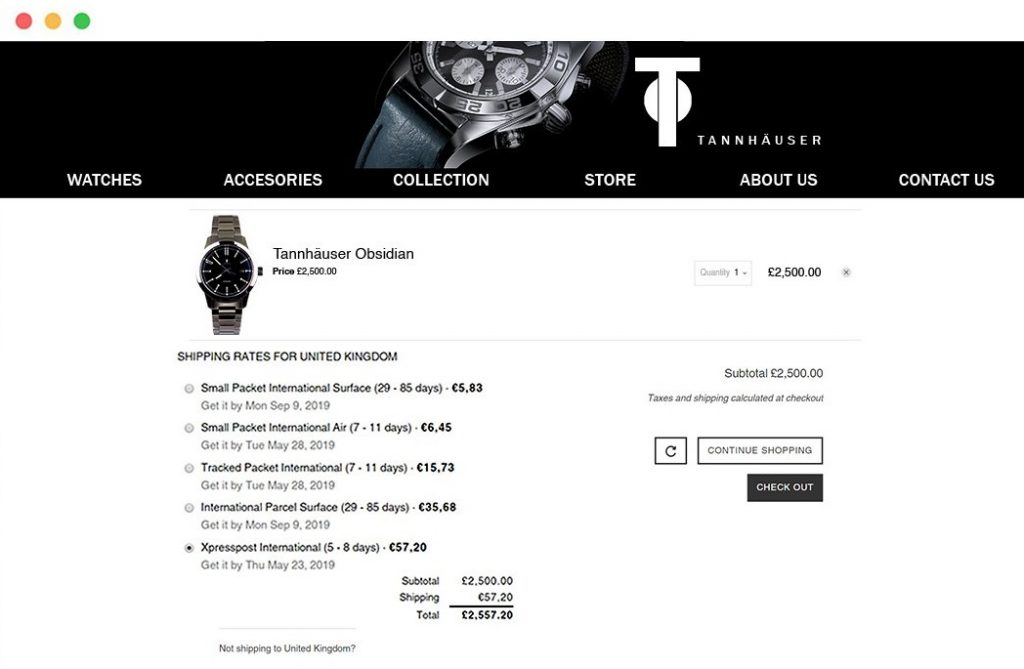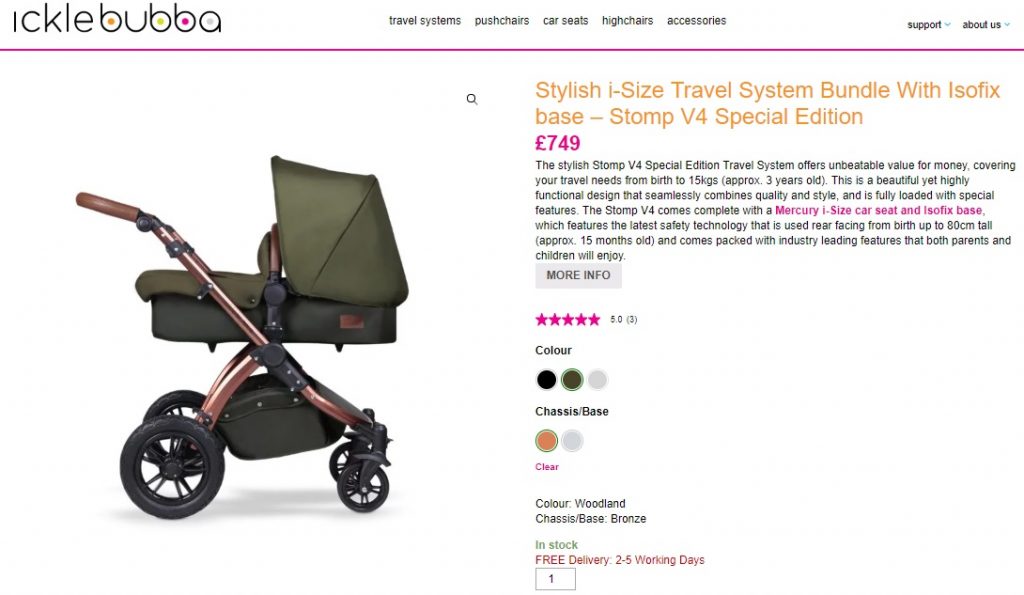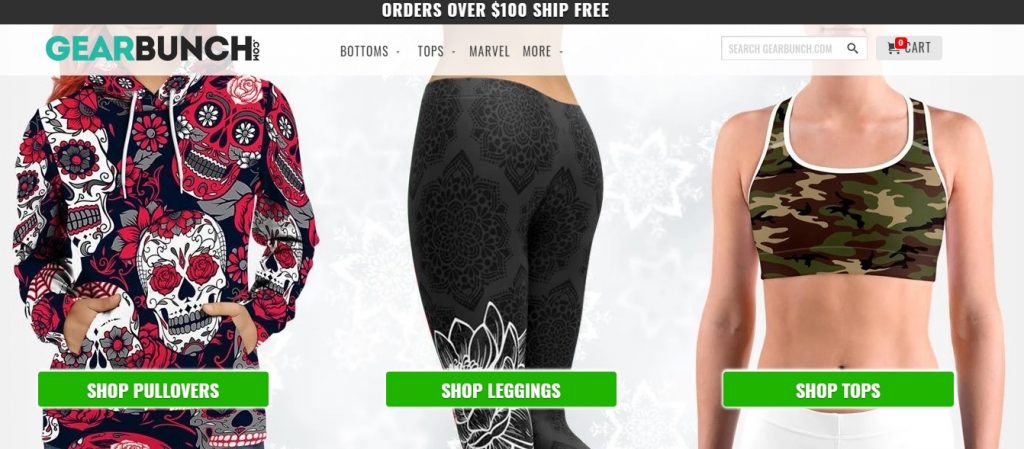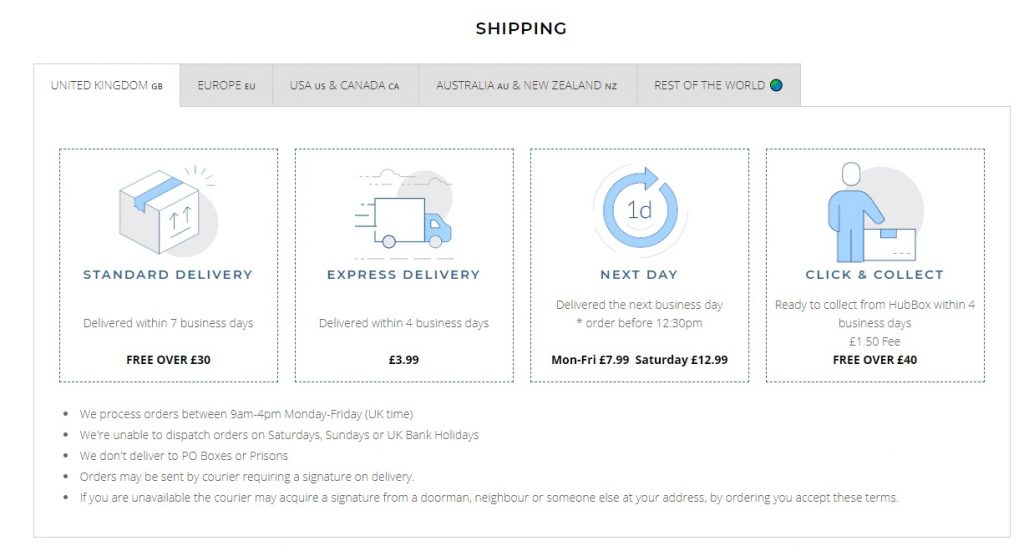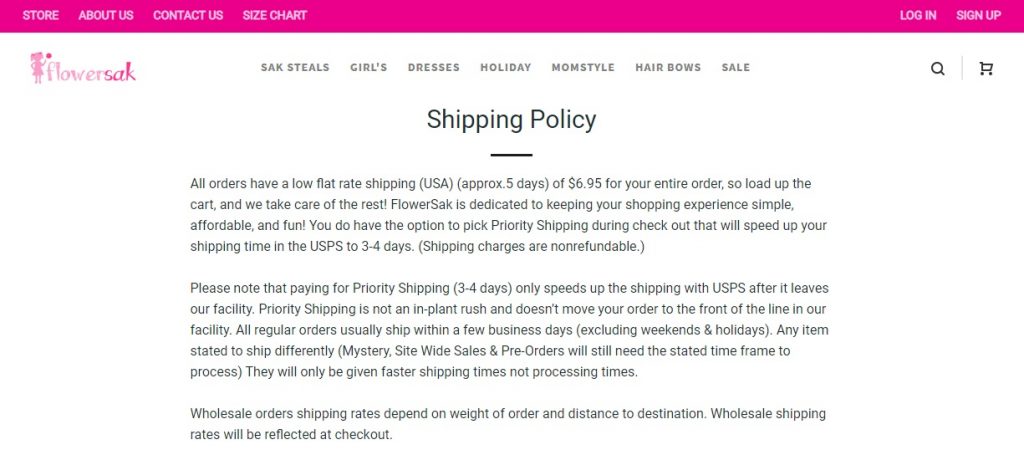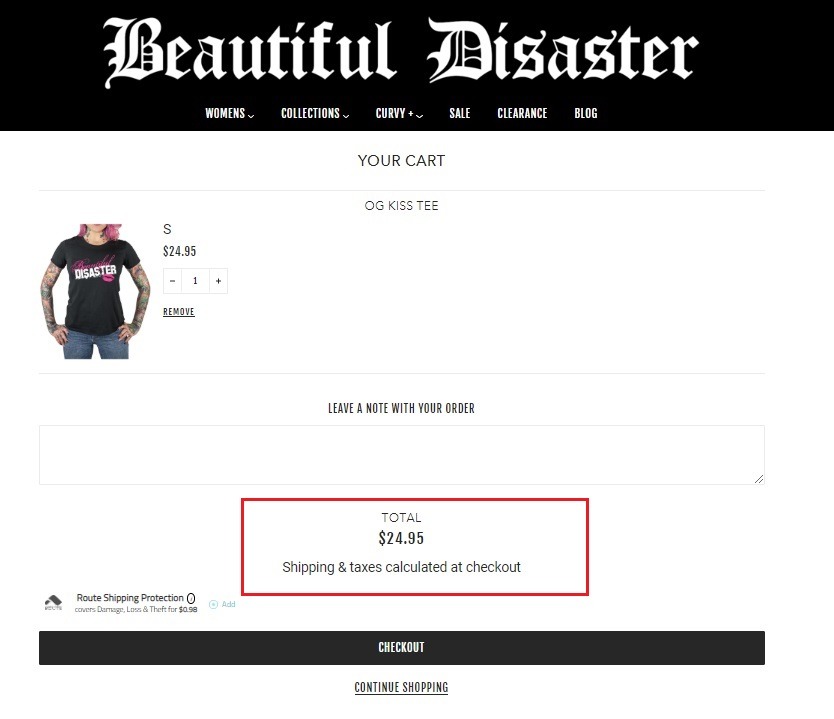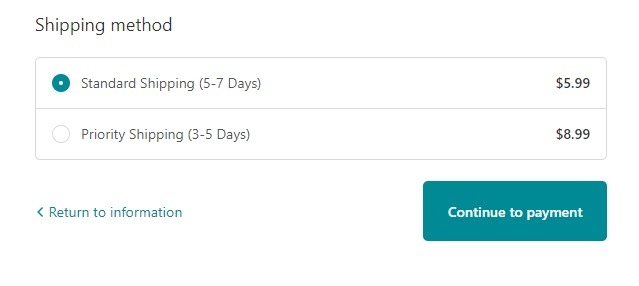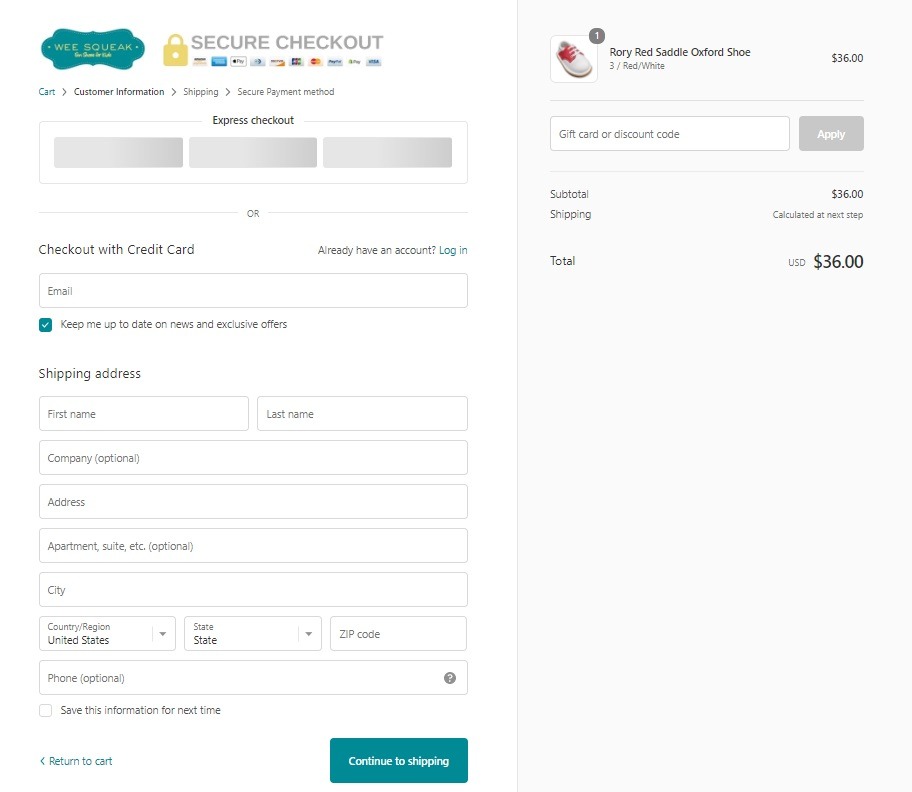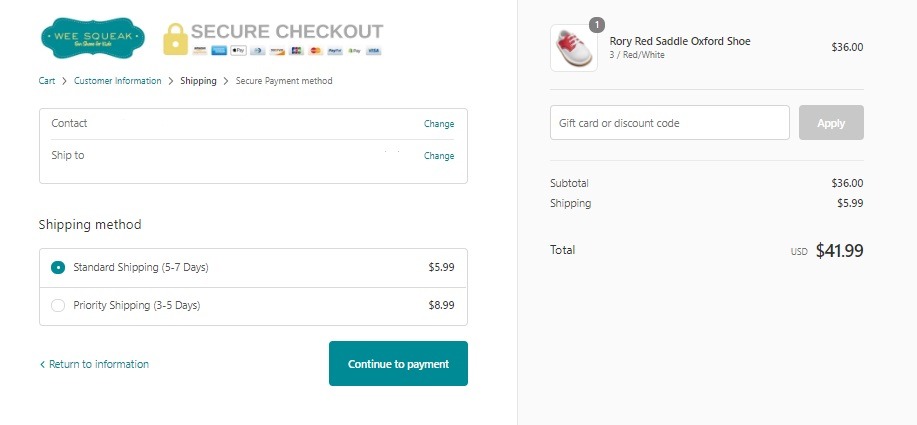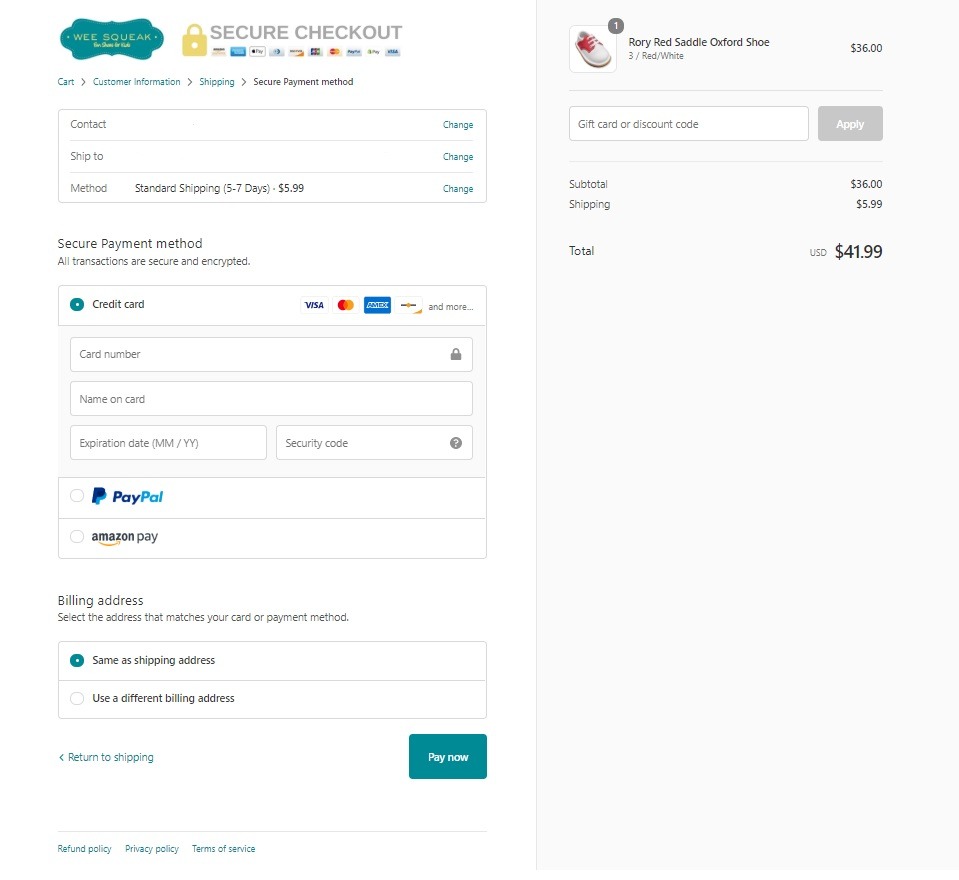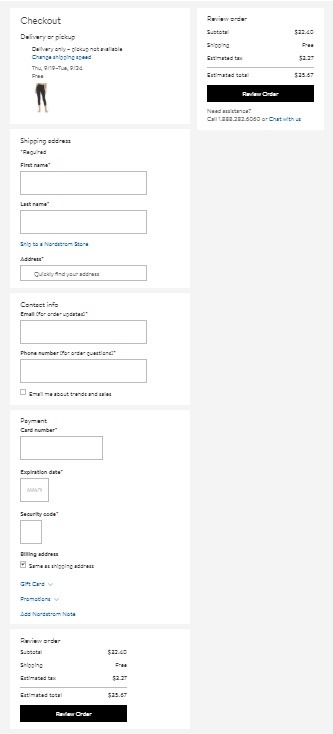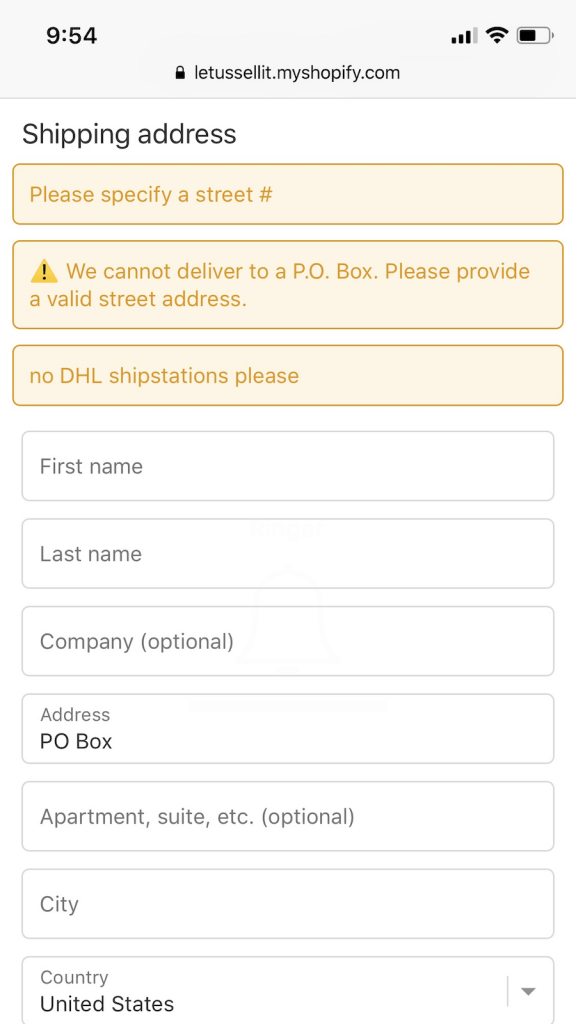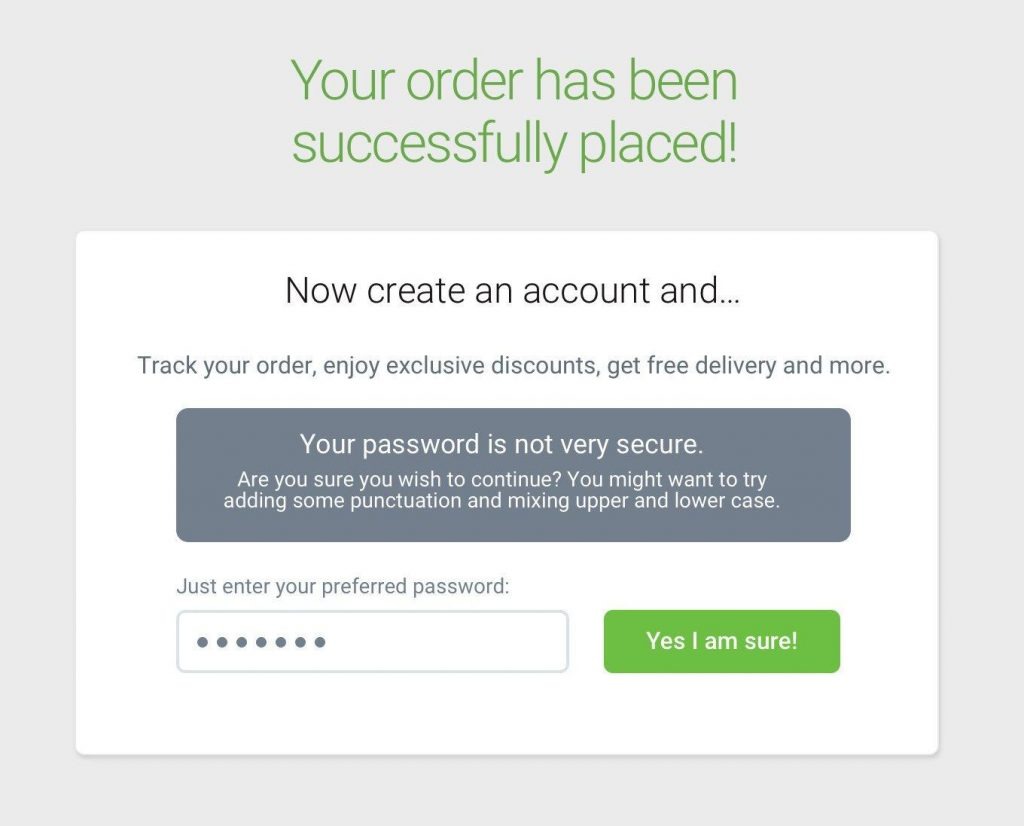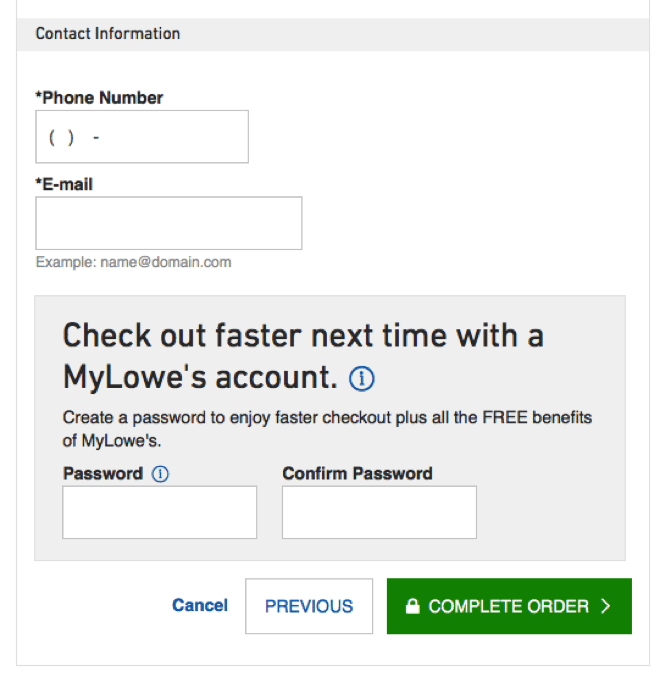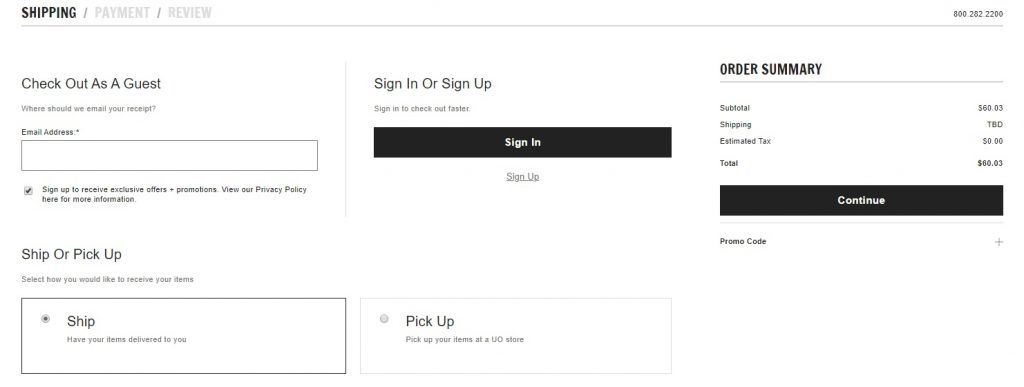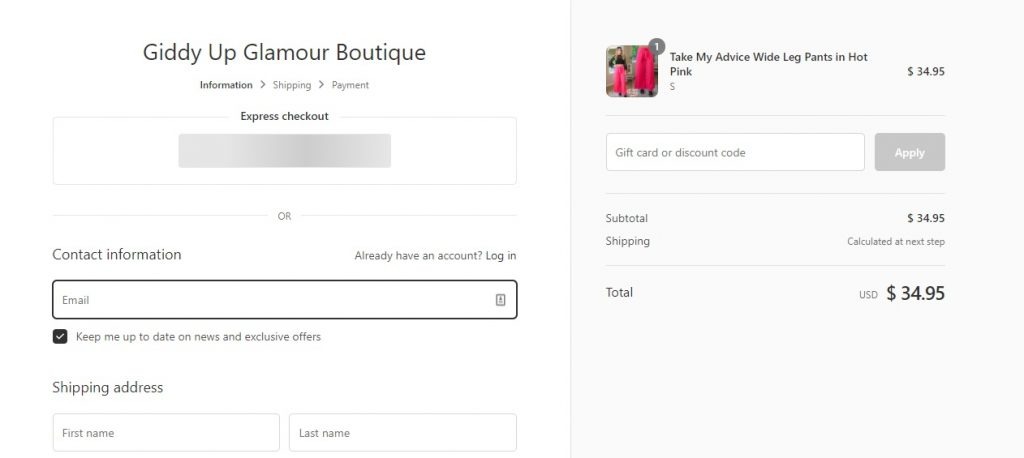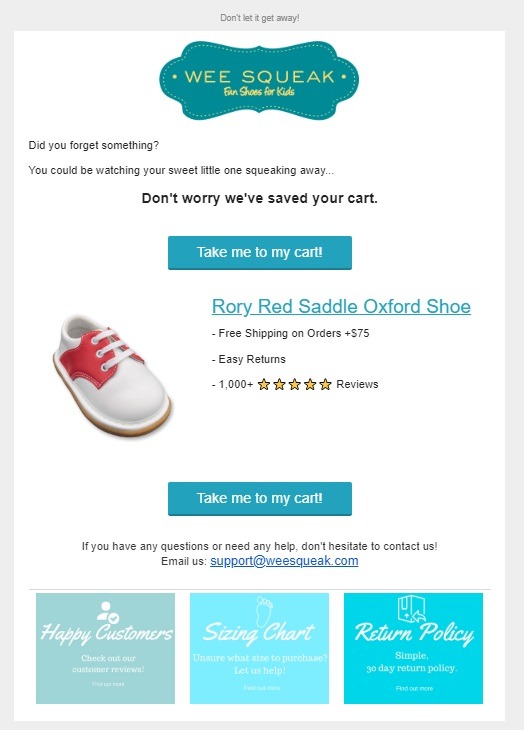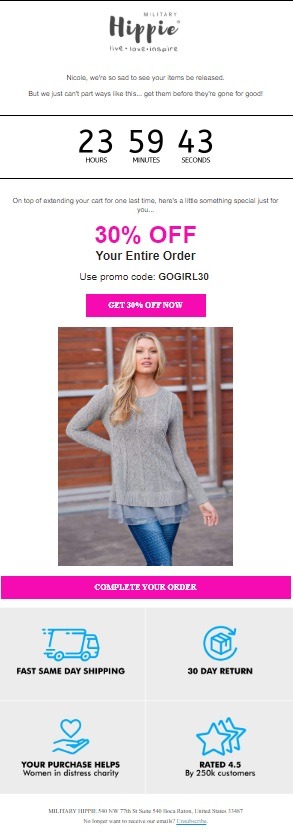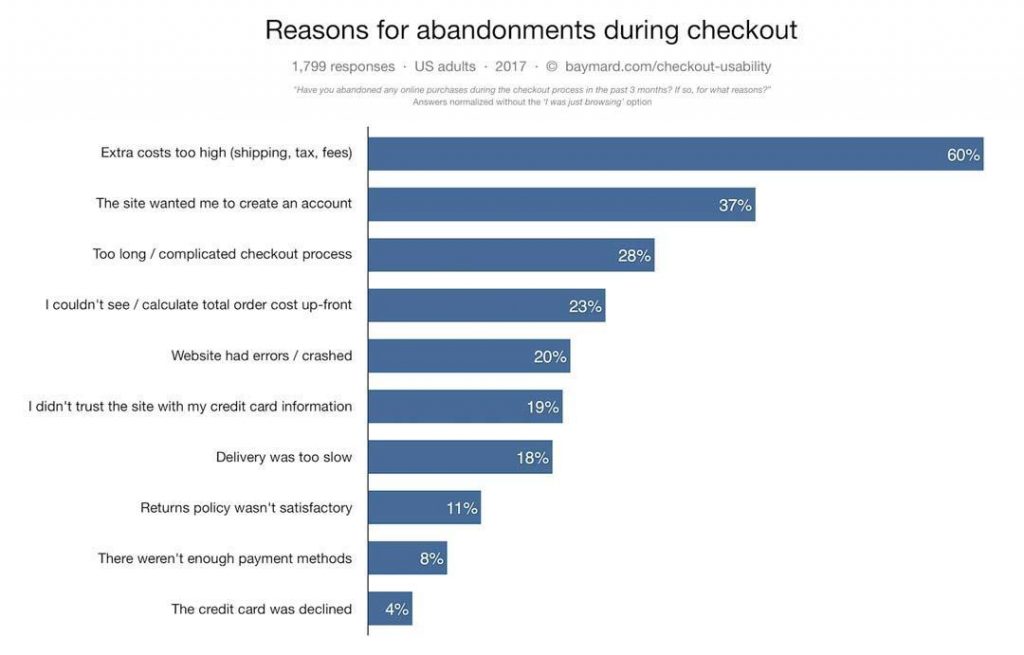It’s time to find out the reasons why shoppers are abandoning their online carts and how to fix them! When you consider that abandonment costs online sellers hundreds of billions per year, there is no time to wait!
If you’re in the eCommerce game, no matter how successful you are, you’re going to have to deal with cart abandonment. In fact, as much as an average of 75% of online shoppers will abandon their purchases before checking out, with some case studies reporting that only 2.86% of online store visits will convert into purchases.
There is a host of reasons why potential shoppers decide not to complete a purchase and, whether you have just started an online clothing boutique or have an established health food store, chances are you’ve got far more abandoned purchases than you would like.
In this guide, we take you through all the reasons why shoppers are abandoning online carts and offer a host of concrete solutions to help boost your sales stats while dropping your cart abandonment rates.
So grab that coffee, get comfortable and get ready for the ultimate must-have eCommerce cart abandonment tools to bring back traffic and boost sales.
Cart Abandonment Reason #1: Unexpected Costs
The top reason for shoppers abandoning their purchases is facing unexpected costs during the checkout process. Previous case studies have proven that as many as 56% of abandoners do so because of unforeseen costs; fixing this could decrease your cart abandon rate by half, with other case studies putting it closer to 60%.
Unexpected costs include higher-than-expected shipping costs, unanticipated processing fees or taxes, and automatic cross-sells. Let’s look at each.
1. Hidden Shipping Costs
Hidden, extra shipping costs are the biggest reason why online shoppers choose not to complete their transaction. Not only will this result in the cancelation of a possible sale, but cause potential shoppers a lot of frustration – which can tarnish your brand in the long run.
The thing is, with so many stores including automatic shipping rates based on location that only show during the checkout process, this is far more common than you may think. Why? Because checkout calculators typically require you to get halfway through checkout, including inputting your address, before the costs show.
Here are five possible solutions you can test to reduce cart abandonments that are due to hidden costs.
Fix 1: Be Transparent With Shipping Estimates
If you are offering live shipping rates, you may want to consider including delivery cost estimation in your product pages. This will alleviate the ‘shock’ factor of potential customers only seeing costs at the last stage of their purchase and allow you to be completely transparent. If you have a Shopify store, there are apps that can help you do this, such as Estimated Shipping Cost.
Fix 2: Have a Delivery Calculator
Alternatively, you could include a delivery calculator tool on your store site that potential customers can use to get estimated shipping rates themselves by inputting their zip codes. You could have these in product pages and shipping policies. Here’s an example from Nordstrom.
Fix 3: Show Shipping Rates in Carts
Instead of having estimates in product pages, you can include the exact shipping rates in your checkout pages, like Look Human does with their fixed shipping rates.
Using geotagging, with this abandonment fix you will automatically add the shipping rates to carts. If you’re on Shopify, this can be easily done with apps such as Shipping Rates Calculator+.
Fix 4: Implement Free Shipping Promotions
The next fix for combating the hidden shipping cost abandonment reason is implementing shipping promotions. You can either do this by including shipping in the cost of your products and then displaying free shipping. Here is an example from icklebubba.
Or, offer a free shipping promotion based on the amount spent on your store. The latter is often preferred by online stores with lower-priced products as this keeps the product prices down while encouraging more purchases on the site.
Fix 5: Include Rates In Your Shipping Policy
The last and most straightforward solution to try to fix cart abandonment due to shipping costs is to include a full breakdown of your rates and delivery times in your shipping policies. Here are examples from two of our top merchants, Mrs Bowtie and Flower Sak.
2. Hidden Extra Costs
And it’s not just shipping – other additional costs that only come up towards the end of checkout also play a role in abandonment. Let’s consider a potential shopper who visits your store and adds a product to their cart. On checkout, their total now includes shipping costs and sales taxes – which push the total cost up considerably. This can be even more shocking if your extras aren’t transparent and there is an extra product, or service add-ons like shipping insurance (as an example), automatically added to their cart.
So, what’s the solution to help mitigate this abandonment reason?
The Fix
Of course, when it comes to sales tax, there isn’t much online store owners can do to reduce this; but by being transparent with your shipping rates, for one – as shown above, any additional sales tax won’t seem as dramatic. You also need to ensure that you include a disclaimer in your product or cart pages that all prices exclude shipping and taxes and that they will be calculated during checkout. Here’s an example from top merchant Beautiful Disaster.
Cart Abandonment Reason #2: No Express Shipping Options
Just because you offer fixed, free or promotional shipping to counter hidden cost abandonment doesn’t mean you shouldn’t offer faster shipping upgrades. One study said as much as 16% of shoppers who abandoned their cart stated no speedier delivery options as their reason. Another put this percentage even higher, at 26%.
We can thank Amazon for faster delivery demand, and you may be surprised at how many shoppers are willing to pay more to get their items more quickly. So how do you combat this abandonment reason?
The Fulfillment Fix
If you don’t currently have faster shipping options, the first thing you need to do is adjust your fulfillment strategy. The easiest way for bigger stores to do this is by using third-party fulfillment services that are strategically placed close to your customers. Let’s say you’re located in the US, but want to offer affordable two-day shipping to your European customers. Using a fulfillment service with a warehouse in Europe will enable you to achieve this. Click here for a full list of eCommerce fulfillment services to get you started.
The Store Optimization Fix
The next thing you will want to do is update your online store’s site to include faster shipping upsell options. If you’re using Shopify, this can be relatively easy to do from the shipping settings page. Simply create a shipping rate, call it ‘Express’ or any other name you wish, insert the rate of said shipping and there you go. Or if you’ve decided to go with a fulfillment service, you can follow this Shopify step-by-step guide to add a fulfillment service:
Cart Abandonment Reason #3: Your Checkout Process Sucks
and confusing checkouts.
When it comes to reasons why shoppers are abandoning their online carts, there is no doubt that your checkout process plays a huge role. One case study found that 26% do so because the checkout process is long and/or confusing, while some put the number closer to 30%. The good news is that checkout optimization can be incredibly fruitful for store owners – one article even goes so far as to predict that optimization of checkouts could recover as much as $260 billion in sales. The bad news? It will take time and testing to get it right: to streamline your navigation and make sure the shopping experience appeals to your shoppers.
What you want to do is make your checkout process as easy, user-friendly and transparent as possible, while also ensuring you display trustworthiness every step of the way. A lot of the fixes in this post will apply to checkout pages and thus help you optimize your pages, even when you’re optimizing for cart abandonment.
Here are five checkout optimization tips, strategies and edits to try.
Checkout Optimization Fix 1: Keep Your Whole Checkout Process Short and Simple
The first thing you want to do is ensure that your checkout process is as short and simple as possible. Why? Because a long, drawn-out process could give shoppers the time to change their minds or get frustrated – both of which would have them leaving before the checkout is complete. But it’s not just your checkout page you need to optimize – it’s the whole checkout experience.
This means everything should be clear, simple and thought-out in terms of the shopping experience, from your product pages all the way through to the final ‘pay’ button. Plus, your checkout process should have as few pages as possible.
Here’s an example from one of our top merchants, Wee Squeak.
From their cart, you are taken to the address input page and then to the shipping method.
As you can see below, the page is simple and easy to go through. Plus the load time is super quick.
Lastly, you have a payment page with payment options and a simple CTA – Pay Now – button.
Additionally, along with a simple checkout process they ensure they keep their brand’s look and feel throughout all their paces as well as including credit card logos and a variety of payment options.
Checkout Optimization Fix 2: Get Rid of Distractions
Another thing you want to ensure is that your checkout is optimized for fewer distractions. This means no overbearing headers, only including the must-have links such as policies and return buttons, and highlighting payment security in a simple, visually-friendly way. The above is a prime example of this. Another example is this one-page checkout from Nordstrom.
Checkout Optimization Fix 3: Make Sure Your Store UX Includes Data Validation
If your store doesn’t have data validation, you are a little behind the times. Solutions such as PCA Predict allow you to recognize IP addresses for live shipping rates and currency changes. Over and above that, you may want to consider extra services such as Loqate, which include shipping and email address validation during the checkout process plus checkout information auto-correct for shoppers, to help prevent costly mistakes. If you have Shopify Plus, this is included with your platform. For those of you on standard or advanced, you can try an app like Address Validator.
Checkout Optimization Fix 4: Oozing Trustworthiness
The next thing you want to do to try to make sure your potential shoppers aren’t abandoning their carts due to your checkout process is to ensure that you exude trustworthiness.
The trick is to show trustworthiness, but in a clean, UX-friendly way that keeps your brand looking classy. In other words, you don’t want to cover your checkout pages in bold red text saying, “Pick me.” Like the above examples, you want to show trustworthiness with your tasteful security buttons, while also ensuring your pages are designed well, to give the impression of quality and thus further build trust.
Newbie Tip: Totally new to eCommerce and still building your site? Check out this Quick Guide to Trust Badges to get you started.
This also means you want to include important links, such as return and shipping policies, to give the impression of transparency.
Checkout Optimization Fix 5: Test Every Additional Element Before Adding
Lastly, a quick word about testing. Everything you add to the checkout will add time to the process. Therefore you want to test every new element, separately, before changing or updating your checkout. This means testing usability and tracking the time it takes to complete different parts of your checkout process.
Cart Abandonment Reason #4: Payment Security Concerns
Another top reason why shoppers are abandoning their online carts is payment security concerns. As much as 15% of cart abandoners state concerns with payment security as their reason for not going through with a purchase. Plus, around a third of online shoppers hesitate to buy from eCommerce sites due to fear of credit card fraud and data theft. So how do you combat these payment security concerns to decrease cart abandonment and increase sales? Here are 2 solutions to improve payment security impressions for your online store.
Payment Security Fix 1: Secure Your Payments
Before you optimize checkout for payment trustworthiness, you need the technical security to back it up. You want to:
- Make sure that you are PCI DSS (Payment Card Industry Data Security Standards) compliant.
- Consider fraud prevention tools to prevent fraudulent activities. If you’re using Shopify, their built-in fraud analysis will have you covered.
- Reduce data breach potential using tokenization, which sends data to a centralized server for safe storage and replaces it with a token on your site for future transactions. This is determined and set by your payment gateway.
- Make sure that your site is secured with an SSL protocol, to ensure all information your shoppers input is encrypted and protected.
- Conser 3D Secure, which offers an extra layer of security for payments.
You want to make sure you check these security measures before choosing your platform and gateway. Why? Because if you’re using a good eCommerce platform and have chosen a top payment gateway, the above should be covered.
Payment Security Fix 2: Use Visuals to Push Credibility
There are several ways you can reassure shoppers visually. The first way you can do this is by ensuring that the padlock icon shows in the browser address bar, which happens when you’ve activated your SSL certificates. Another must-have is to ensure your trust badges are displayed throughout your checkout pages. Additionally, don’t forget your UX rules for building trust. Things such as ensuring your payment pages look professional and have clear messaging are super important. Lastly, you want to make sure that you have payment options that your customers trust – which brings us to the next point!
Cart Abandonment Reason #5: Lack of Payment Options
Did you know that around 8% of cart abandoners cite payment options, or the lack thereof, as a reason for ditching a purchase? You want to make sure that you not only have a good variety of payment options, but that they are preferred. As a bonus, if a potential shopper trusts the payment options that you have on your store, it will instantly give your online store more trust.
Payment Options Fix
Firstly, you want to make sure you have the most popular payment options in terms of your industry, until you’ve had time to research the best payment methods for your target audience. These include credit/debit/prepaid card payments, e-wallets (such as Google Pay, Amazon Pay and PayPal) and cryptocurrencies, with many types/brands of each.
An important thing to note is that there are costs involved in payment options – something new store owners should be particularly mindful of. These costs include payment reconciliation, transaction monitoring, customer support for each method, and fees. So start with the most important ones and then add as you grow.
Lastly, be sure you keep an eye on emerging payment trends. For example, it is estimated that by 2022, close to 50% of online store transactions will be conducted using e-wallets. If you’re not planning to add e-wallet payment options to your store or keeping up with e-wallet trends, you could find yourself with much higher abandonment numbers.
Cart Abandonment Reason #6: Customers Have to Create User Accounts
Another big reason your shoppers aren’t pushing the ‘pay’ button is if they are forced to create an account first. In numbers, around 34-37% of cart abandoners say forced accounts are why they don’t check out. This could be because they don’t want to offer up data to a brand they don’t know yet or because it slows down the checkout process and is therefore not convenient. Shoppers don’t go to an online store with the intention of creating an account; they are there to shop. If you do have store accounts, here there are three solutions you can try, to reduce cart abandonment based on this reason.
User Account Fix 1: Keep it Super Simple & Pick Your Timing
The first thing you want to do is keep the account creation so simple and integrated with your checkout that customers won’t be put off by it. You could add it to your order payment confirmation or ‘thank you’ page, like this:
Alternatively, work it into the contact details, like this example:
If you give shoppers the option to sign up or pick your moment for after they have completed their purchase, you’re going to face a lot less resistance. Which, of course, means a lesser chance of purchase abandonment.
User Account Fix 2: Offer Guest Checkout
The second thing you should do is ensure that non-members can shop. The easiest way to do this is to offer an option where shoppers don’t have to create an account to buy from your store. This comes in the form of a guest checkout option. Here is an example from Urban Outfitters:
User Account Fix 3: Give Incentives
The two examples we’ve just shown you have another big thing in common. They offer a benefit or incentive for signing up for an account. Benefits such as even quicker shopping or exclusive discounts are easy to add and can give massive value to the whole process.
Cart Abandonment Reason #7: Your Customer Service is Lacking
The next reason your customers may be jumping ship before they finish a transaction on your store is your customer support or lack thereof. Shoppers are looking for fast answers to their questions before a purchase choice and if they can’t get them, they may not trust the sale.
Customer Service Abandonment Fix
You want to make sure that you not only have all the information on your site a customer may need in the way of well-displayed, comprehensive return, shipping, privacy policies and FAQs, but enable potential customers to contact you. This means email, chat and/or phone details that are easy to locate. eCommerce customer service is a constant struggle for store owners, especially when sales and traffic increase, so put your systems in place from day one so that they grow with you.
Bonus content: 4 Web Stores Taking Customer Service to the Max
Cart Abandonment Reason #8: You Have Technical Issues
The next thing you need to consider is the state of your website: Is your shopping experience convoluted? Do your website pages crash? Or are your pages, and most importantly, your checkout page, slow to load? All these things not only leave a bad impression but slow down the transition from site visitor to paying customer and can lead to many potential shoppers jumping ship.
eCommerce Technical Issues Fix
Customer experience should be at the top of your agenda! This means optimizing your home page, tweaking your checkout process and monitoring your load times. The easiest way to see how your store is comparing to other 7-8-figure stores in your niche in this regard is with free apps like Benchmark Hero. Benchmark Hero completes a full site audit and gives you a rating of – and solutions to – your shopping experience, technical performance, trustworthiness and marketing to help you improve across the board.
Cart Abandonment Reason #9: Your Return Policy Stinks
If a customer can’t find your return policy or when they do, it isn’t satisfactory, there is a big chance they will abandon their shopping. Especially if this is the first time they have seen or heard about your brand. Here are some return policy stats to consider, from Dotcom Distribution and Narvar:
- 96% of shoppers will shop at a store again if they experience or are aware of an easy return experience with the brand, with 90% highly valuing free returns
- A whopping 69% of shoppers are put off by having to pay for return shipping
This means that if your returns aren’t free and too strict, you’re swimming upstream.
Return Policy Abandonment Fix
The first thing you should consider is the top reason for why customers want to return products, which, in most cases, is sizing issues. Here are all the reasons why customers return items to Shopify:
- 30% – size too small
- 22% – size too large
- 12% – change of mind
- 8% – style
- 5% – not as described
- 5% – defective
- 18% – not specified
Once you know this, you can reduce the need for returns by ensuring you not only display size charts front and center, but state ways you will deal with each of these top reasons in your return policy. Here are some guides for creating informative policy pages and handling refunds, to get you started:
- Creating the Perfect eCommerce FAQ Page
- Must-Have Terms and Conditions Template for eCommerce
- The Right Way to Handle Refunds
Cart Abandonment Reason #10: Your Upselling Strategies are Too Aggressive
Overly aggressive upselling could be killing your conversions. This may be surprising if we consider that upselling is a key part of eCommerce marketing. However, if done during the checkout process, it can harm rather than help your sales. An upsell popup before being taken to the checkout page could slow the checkout process and annoy your shoppers. While aggressively adding upsell items to the cart when a shopper checks out can leave the impression you’re trying to milk them for all they are worth. So, what’s the fix?
Aggressive Upselling Abandonment Fix
Firstly, if you are upselling during checkout with a pre-checkout popup or adding something to the cart, you want to be very strategic about it. Make sure the product is highly relevant to what the shopper may buy. Additionally, if you are going to add something to the cart automatically, keep it highly valuable, like additional shipping insurance. Alternatively, you could test these strategies:
- A one-click upsell popup that comes up after a sale has been completed. In other words, an additional item the shopper can add to the just-completed order by selecting it. Apps like Bold Upsell can help you easily achieve this, as well as other cross- and up-sell strategies.
- Try adding a product up- or cross-sell in your transactional ‘thank you’ email.
- Have related products in the cart that customers can select if they want them, therefore making the strategy less aggressive.
Want to increase sale value? Here are 5 Tips for Increasing Average Order Value to get you started.
Cart Abandonment Reason #11: Outpricing Your Competitors
Did you know that around 18% of potential shoppers abandon carts because they just wanted to compare prices? If you add that to the 87% of shoppers who start all their product searches online – whether they plan to shop online or in-store – and a study that shows only 17% of online shoppers are browsing with the intent to purchase – there is no doubt that pricing matters.
Pricing Abandonment Fix
So how do you compete with your biggest competition in terms of pricing? The thing is, it’s not just a matter of dropping your prices – there is no doubt people will pay more for products they perceive as having better quality and service. You need to stay competitive, yes, but you also need to ensure you have created a great product and shopping experience on your site to drive up the value of your brand. If your biggest competitors also have top-notch sites and their product quality is in line with your own, then it’s time to look at your margins, marketing and how you can position your brand uniquely. Here are some top eCommerce guides that will help you with this:
- 13 Tools and Hacks for Spying on Your Competitors
- 4 Ways to Beat Your Competitors’ Facebook Ads
- What to Do If Your Competitors Reduce their Prices
- Everything You Need to Perfectly Price a Product
Cart Abandonment Reason #12: Lookie-Loos
The last of the top twelve reasons why shoppers are abandoning their carts is that they’re just looking from the start. According to a Baymard study, as many as 58% of cart abandoners do so because they were just browsing. In fact, about 34% of your overall eCommerce traffic is just window shopping. This means that even if you implement all the cart abandonment solutions we’ve suggested in this post, you’re still going to have lookie-loos. That doesn’t mean you’ve lost them as customers; this is where your other marketing strategies come in.
Fix 1: Email Capturing
The first crucial thing to do is to capture as many email addresses as possible – and we are not just talking about your coupon popup strategies. Within your checkout process, you want to capture the email address as early as possible, just like Giddy Up Glamour has done here:
This is super important for guest or account creation checkout because it means that no matter where in checkout process they are or how far they get, you have their email address. And if you have their email address, you can bring them back using automatic abandonment emails with exclusive deals and count-down sales while they are still ‘hot.’ You can then also move them to the cooler mailing lists for email retargeting later. Here are two examples of abandonment emails from some of the brand examples in this post:
Bonus Content: 9 Winning eCommerce Email Campaigns You Should Borrow Today!
Fix 2: Converting Remarketing Campaigns
The second and final solution for traffic that’s just having a look is your digital remarketing campaigns. This means you not only need to have a solid cross-platform remarketing campaign strategy that includes Google and Facebook, but ensure it is optimized for maximum success. In fact, purely created and/or optimized ads can not only cost you sales but blow your full advertising budget. For those of you wanting to outsource these campaigns for a fraction of the cost of what an agency would charge, then Traffic Booster is a must-try. For those of you DIYing your PPC campaigns, here are some guides to help you take your remarketing campaigns to the next level:
- 11 RLSA Strategies to Drive Conversions
- 7 Facebook Remarketing Tips for Guaranteed Success
- Using YouTube Ads to Recover Abandoned Carts in 6 Steps [Pro Strategy]
- How to Create a Cross-Channel (Facebook & Google) Strategy to Drive Sales
—
In a Nutshell
As you can see, there are a lot of reasons why shoppers are abandoning their carts, and a lot of solutions you can test to improve your rates. The bottom line is that if your store is optimized for shopping experience and you’re keeping a close eye on customer data and insights, you’re already on your way to improving your cart abandonment stats.
We suggest starting with one fix at a time and then testing your results. If you have a smaller budget for changes, you want to begin with combating those top cart abandonment reasons for your specific store. Here are the top reasons for abandonments during checkout from Baymard Institute to inspire you.
Still got questions? Post them in the comments below!

Nicole is a content writer with over sixteen years experience and flair for storytelling. She runs on a healthy dose of caffeine and enthusiasm. When she's not researching the next content trend or creating business content strategies, she's an avid beachgoer, coffee shop junkie and hangs out on LinkedIn.
Recommended articles
 Facebook Ads for eCommerce: 16 Strategies, Examples & Tips
Facebook Ads for eCommerce: 16 Strategies, Examples & Tips
 How to Build a Winning eCommerce Ads Strategy
How to Build a Winning eCommerce Ads Strategy
 Google Ads for eCommerce: Everything You Need to Know
Google Ads for eCommerce: Everything You Need to Know
 10X Your Traffic with PPC Management Software
10X Your Traffic with PPC Management Software
Comments
Powered by Facebook Comments
